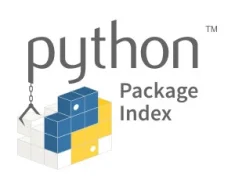Google Translate is taking a giant leap forward, adding 110 new languages to its platform. This update, the most extensive expansion yet, now covers nearly a tenth of the world’s population.
With advancements in artificial intelligence, specifically Google’s PaLM 2 language model, the translation service can now learn closely related languages more efficiently.
Bringing More Languages to More People
Google’s software engineer, Isaac Caswell, highlighted that the latest additions include languages close to Hindi, such as Awadhi and Marwadi, and French Creoles like Seychellois Creole and Mauritian Creole. Other notable inclusions are Afar, Cantonese, and Tamazight (Amazigh).
These additions represent over 614 million people, about 8% of the global population, with a significant portion from Africa, marking the largest expansion of African languages on Google Translate.
Key Updates:
- 110 New Languages: Covering 8% of the global population.
- Focus on Africa: Largest addition of African languages to date.
- Efficient Learning: Combines regional dialects effectively.
Expanding Coverage to Nearly 10% of the World
Google’s language models create hybrid versions of languages with regional varieties and dialects, prioritizing the most commonly used versions.
For instance, Romani has many dialects throughout Europe. Google’s models produce text closest to Southern Vlax Romani but also mix in elements from other dialects like Northern Vlax and Balkan Romani.
Breaking Down the Numbers:
| Region | Languages Added | Population Covered |
|---|---|---|
| Africa | Multiple African Languages | Significant portion |
| Asia | Awadhi, Marwadi | Millions |
| Europe | Romani (various dialects) | Numerous countries |
| Global | 110 Languages Total | 614 Million People |
Harnessing the Power of AI for Translation
In 2022, Google added 24 languages using Zero-Shot Machine Translation, where a model translates into another language without seeing an example. The company also introduced the 1,000 Languages Initiative to support the world’s most spoken languages.
As technology advances, Google plans to support even more language varieties and spelling conventions over time.
Practical Applications
You can use Google Translate at translate.google.com, or via the Android and iOS mobile apps. Google, like many tech companies, leverages AI to enhance its offerings. It’s incorporated AI into platforms like Gmail, Search, and Messages, and made AI the primary focus of its I/O event in May.
Competitors like Apple and Microsoft have similarly woven AI into their products and services, with Apple recently unveiling a suite of “Apple Intelligence” updates for the iPhone.
The Bottom Line
As AI continues to evolve, it’s clear that companies like Google are at the forefront of integrating this technology into everyday tools.
Google Translate’s addition of 110 new languages underscores its commitment to inclusivity and innovation. With AI advancements, the platform is not only enhancing its capabilities but also making strides in connecting the global population.
Whether you’re using it for travel, business, or personal communication, Google Translate is now more powerful and comprehensive than ever.


